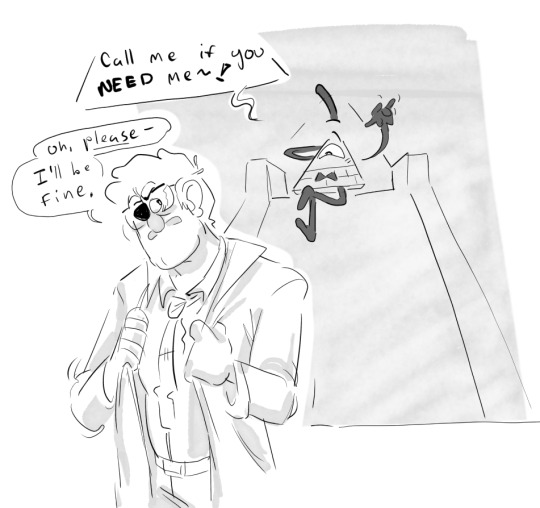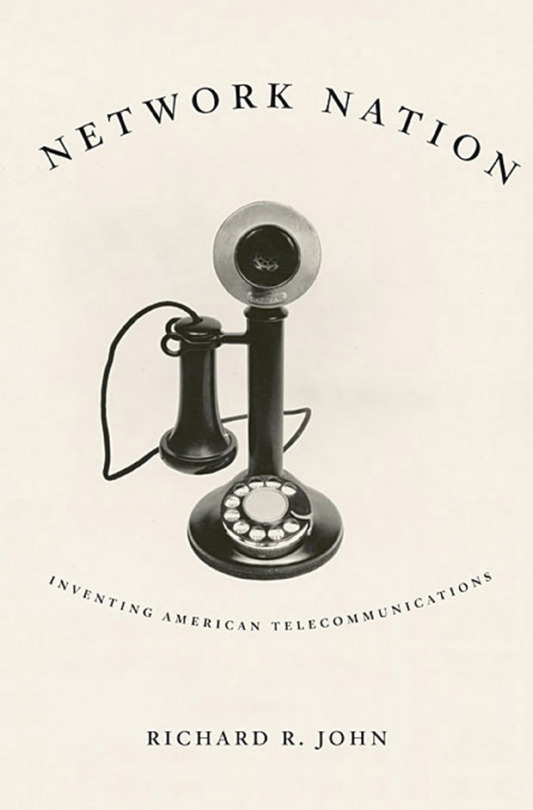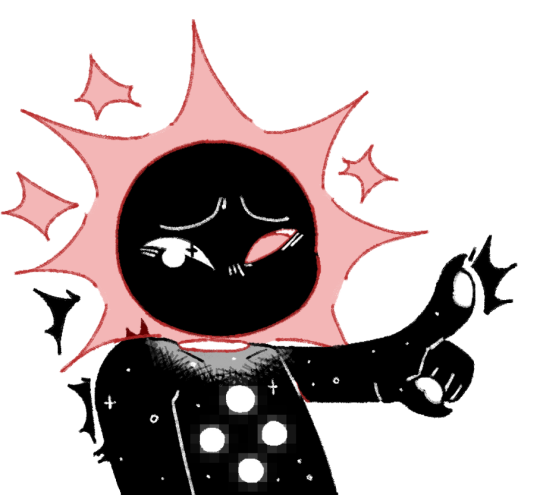#r: the guide
Explore tagged Tumblr posts
Text

we're making lore for childhood crushes tonight. im going into terraria to smooch the guide and no one can stop me (he/him for both characters please!!)
#selfship#f/o#the guide terraria#terraria guide#<- hope thats the right tag whoopsy!#selfship community#selfship doodle#fictional other#f/o x s/i#r: the guide#s/i: unnamed
13 notes
·
View notes
Text





early days shenanigans
shameless fic plug
#billford#gravity falls#stanford pines#bill cipher#gf theseus’ guide#they r silly#i like to imagine that for several years after falling through the portal#ford refuses to get new clothes#anyways chap 4 has some more of these two being silly yay#i'll need to do a whole spin off fic that's just these two being fucking goobers
2K notes
·
View notes
Text

congrats on your recovery n all yuuji but unfortunately for you I thought the scars were cool >:/
#my art#jujutsu kaisen#jjk#yuji itadori#jjk fanart#jujutsu kaisen fanart#jjk art#jjk spoilers#jjk manga spoilers#jjk leaks#these took so long i kept getting distracted cries#but they r done and this is yuuji's post canon scar map to me. argue with a wall we should have had this#looks at canon this sign won't stop me bc i cant read >:(#smh robbed!!!!!! the potential!!!!! the aesthetic!!!!! th angst the symbolism!!!!!!#gege i respect u i do not want beef after u let my boys live#but u rly couldnt have scuffed him up a LITTLE more.....there were so many to choose from didnt u have a favourite.....#all he has to show fr all that r two little scratches. rly.#((not counting the ear n fingers thank god i get That much))#anyway i made a whole post abt why i think yuuji should have kept the scars n what it would have stood for symbolically#its along th same lines as the yuuji Big Face Scar agenda hh i just care a lot abt character design n visual storytelling ok#anyway fine he can keep the eye but in this house it grew back wrong it's lighter and foggy and now his prescription is stronger#as fr the rest#megumi has dibs on the upper right eye apparently so yuuji can have the bottom half#i would have doubled down on the scars on his left but a. the right side is the symbolic one#b. he healed an entire eye so it makes sense tht he'd heal other more minor injuries as well#c. tbh it's mostly based on what looked good i think this arrangement guides the eye across his face nicely#gave him a lil nose nick bc smth smth sukuna idk it's just there to balance things out#also as i said. the jaw and neck scar are there for kissing purposes i make the rules im salty and i do what i want smile#in other news thank u past hina fr doing those hair render studies im very happy with my yuuji hair as of late
949 notes
·
View notes
Text

WOOO!!! GO MY HUMAN GUIDE!!
idk if this is canon to the AU but. was discussing some funny things :] which led to!! my friend @remxedmoon making this design for me !! i lvoed it very much so :] i quickly did a bunch of doodles of it. bunch. of silly things going on in this design, sniles.
#youy should follow marshall remxedmoon btw.. my frand they r very cool#isat#in stars and time#bonnie isat#guide isat#<- still.need to put everything in that tag#randomized isatswap au#my art#isat spoilers
311 notes
·
View notes
Text
girls, im in deep. After reading hdg stories constantly for a few days, my desire to be a floret has manifested itself as an afini in my head who makes me take proper care of myself! I've never brushed my teeth so consistently, and i floss now! i drink plain unflavored water, and i like it. i used to be completely unable to drink unflavored water before. every night, i wrap myself up in my sheets, imagining that im wrapped in mistresses vines, all blissed out on xenodrugs. I loved weed before, now im kind of afraid ill be a little too into it.
384 notes
·
View notes
Text
everyone turning up to guillermo’s hiding spot was actually so heartwarming i felt like i was intruding on the moment. they all love him in their own little freakish ways. they’re all friends!! they’re all family!!! they love each other bitches!!!!!!
#wwdits#i mean nadja and guillermo just having a lil chat abt it#colin’s award to him#LASZLO FUCKING APOLOGIZING??????#R U KIDDING ME RN?????#the guide even bringing the freaks of nature to guillermo lmao#i’m sorry i cannot call them anything else i hate them <3#it was actually so sweet
1K notes
·
View notes
Text
welp


#buttercup duo#killer sans#kc chara#undertale something new#something new chara#utmv#utmv au#undertale#undertale au#i depend on you#lsb.png#:)#who needs eyes when you r guided by external being /j
124 notes
·
View notes
Text
Richard R John’s “Network Nation”

THIS SATURDAY (July 20), I'm appearing in CHICAGO at Exile in Bookville.

The telegraph and the telephone have a special place in the history and future of competition and Big Tech. After all, they were the original tech monopolists. Every discussion of tech and monopoly takes place in their shadow.
Back in 2010, Tim Wu published The Master Switch, his bestselling, wildly influential history of "The Bell System" and the struggle to de-monopolize America from its first telecoms barons:
https://memex.craphound.com/2010/11/01/the-master-switch-tim-net-neutrality-wu-explains-whats-at-stake-in-the-battle-for-net-freedom/
Wu is a brilliant writer and theoretician. Best known for coining the term "Net Neutrality," Wu went on to serve in both the Obama and Biden administrations as a tech trustbuster. He accomplished much in those years. Most notably, Wu wrote the 2021 executive order on competition, laying out a 72-point program for using existing powers vested in the administrative agencies to break up corporate power and get the monopolist's boot off Americans' necks:
https://www.eff.org/de/deeplinks/2021/08/party-its-1979-og-antitrust-back-baby
The Competition EO is basically a checklist, and Biden's agency heads have been racing down it, ticking off box after box on or ahead of schedule, making meaningful technical changes in how companies are allowed to operate, each one designed to make material improvements to the lives of Americans.
A decade and a half after its initial publication, Wu's Master Switch is still considered a canonical account of how the phone monopoly was built – and dismantled.
But somewhat lost in the shadow of The Master Switch is another book, written by the accomplished telecoms historian Richard R John: "Network Nation: Inventing American Telecommunications," published a year after The Master Switch:
https://www.hup.harvard.edu/books/9780674088139
Network Nation flew under my radar until earlier this year, when I found myself speaking at an antitrust conference where both John and Wu were also on the bill:
https://www.youtube.com/watch?v=2VNivXjrU3A
During John's panel – "Case Studies: AT&T & IBM" – he took a good-natured dig at Wu's book, claiming that Wu, not being an historian, had been taken in by AT&T's own self-serving lies about its history. Wu – also on the panel – didn't dispute it, either. That was enough to prick my interest. I ordered a copy of Network Nation and put it on my suitcase during my vacation earlier this month.
Network Nation is an extremely important, brilliantly researched, deep history of America's love/hate affair with not just the telephone, but also the telegraph. It is unmistakably as history book, one that aims at a definitive takedown of various neat stories about the history of American telecommunications. As Wu writes in his New Republic review of John's book:
Generally he describes the failure of competition not so much as a failure of a theory, but rather as the more concrete failure of the men running the competitors, many of whom turned out to be incompetent or unlucky. His story is more like a blow-by-blow account of why Germany lost World War II than a grand theory of why democracy is better than fascism.
https://newrepublic.com/article/88640/review-network-nation-richard-john-tim-wu
In other words, John thinks that the monopolies that emerged in the telegraph and then the telephone weren't down to grand forces that made them inevitable, but rather, to the errors made by regulators and the successful gambits of the telecoms barons. At many junctures, things could have gone another way.
So this is a very complicated story, one that uses a series of contrasts to make the point that history is contingent and owes much to a mix of random chance and the actions of flawed human beings, and not merely great economic or historical laws. For example, John contrasts the telegraph with the telephone, posing them against one another as a kind of natural experiment in different business strategies and regulatory responses.
The telegraph's early promoters, including Samuel Morse (as in "Morse code") believed that the natural way to roll out telegraph was via selling the patents to the federal government and having an agency like the post office operate it. There was a widespread view that the post office as a paragon of excellent technical management and a necessity for knitting together the large American nation. Moreover, everyone could see that when the post office partnered with private sector tech companies (like the railroads that became essential to the postal system), the private sector inevitably figured out how to gouge the American public, leading regulators to ever-more extreme measures to rein in the ripoffs.
The telegraph skated close to federalization on several occasions, but kept getting snatched back from the brink, ending up instead as a privately operated system that primarily served deep-pocketed business customers. This meant that telegraph companies were forever jostling to get the right to string wires along railroad tracks and public roads, creating a "political economy" that tried to balance out highway regulators and rail barons (or play them off against each other).
But the leaders of the telegraph companies were largely uninterested in "popularizing" the telegraph – that is, figuring out how ordinary people could use telegraphs in place of the hand-written letters that were the dominant form of long-distance communications at the time. By turning their backs on "popularization," telegraph companies largely freed themselves from municipal oversight, because they didn't need to get permission to string wires into every home in every major city.
When the telephone emerged, its inventors and investors initially conceived of it as a tool for business as well. But while the telegraph had ushered in a boom in instantaneous, long-distance communications (for example, by joining ports and distant cities where financiers bought and sold the ports' cargo), the telephone proved far more popular as a way of linking businesses within a city limits. Brokers and financiers and businesses that were only a few blocks from one another found the telephone to be vastly superior to the system of dispatching young boys to race around urban downtowns with slips bearing messages.
So from the start, the phone was much more bound up in city politics, and that only deepened with popularization, as phones worked their ways into the homes of affluent families and local merchants like druggists, who offered free phone calls to customers as a way of bringing trade through the door. That created a great number of local phone carriers, who had to fend off Bell's federally enforced patents and aldermen and city councilors who solicited bribes and favors.
To make things even more complex, municipal phone companies had to fight with other sectors that wanted to fill the skies over urban streets with their own wires: streetcar lines and electrical lines. The unregulated, breakneck race to install overhead wires led to an epidemic of electrocutions and fires, and also degraded service, with rival wires interfering with phone calls.
City politicians eventually demanded that lines be buried, creating another source of woe for telephone operators, who had to contend with private or quasi-private operators who acquired a monopoly over the "subways" – tunnels where all these wires eventually ended up.
The telegraph system and the telephone system were very different, but both tended to monopoly, often from opposite directions. Regulations that created some competition in telegraphs extinguished competition when applied to telephones. For example, Canada federalized the regulation of telephones, with the perverse effect that everyday telephone users in cities like Toronto had much less chance of influencing telephone service than Chicagoans, whose phone carrier had to keep local politicians happy.
Nominally, the Canadian Members of Parliament who oversaw Toronto's phone network were big leaguers who understood prudent regulation and were insulated from the daily corruption of municipal politics. And Chicago's aldermen were pretty goddamned corrupt. But Bell starved Toronto of phone network upgrades for years, while Chicago's gladhanding political bosses forced Chicago's phone company to build and build, until Chicago had more phone lines than all of France. Canadian MPs might have been more remote from rough-and-tumble politics, but that made them much less responsive to a random Torontonian's bitter complaint about their inability to get a phone installed.
As the Toronto/Chicago story illustrates, the fact that there were so many different approaches to phone service tried in the US and Canada gives John more opportunities to contrast different business-strategies and regulations. Again, we see how there was never one rule that governments could have used if they wanted to ensure that telecoms were well-run, widely accessible, and reasonably priced. Instead, it was always "horses for courses" – different rules to counter different circumstances and gambits from telecoms operators.
As John traces through the decades during which the telegraph and telephone were established in America, he draws heavily on primary sources to trace the ebb and flow of public and elite sentiment towards public ownership, regulation, and trustbusting. In John's hands, we see some of the most spectacular failures as more than a mismatch of regulatory strategy to corporate gambit – but rather as a mismatch of political will and corporate gambit. If a company's power would be best reined in by public ownership, but the political vogue is for regulation, then lawmakers end up trying to make rules for a company they should simply be buying giving to the post office to buy.
This makes John's history into a history of the Gilded Age and trustbusters. Notorious vulture capitalists like Jay Gould shocked the American conscience by declaring that businesses had no allegiance to the public good, and were put on this Earth to make as much money as possible no matter what the consequences. Gould repeated "raided" Western Union, acquiring shares and forcing the company to buy him out at a premium to end his harassment of the board and the company's managers.
By the time the feds were ready to buy out Western Union, Gould was a massive shareholder, meaning that any buyout of the telegraph would make Gould infinitely wealthier, at public expense, in a move that would have been electoral poison for the lawmakers who presided over it. In this highly contingent way, Western Union lived on as a private company.
Americans – including prominent businesspeople who would be considered "conservatives" by today's standards, were deeply divided on the question of monopoly. The big, successful networks of national telegraph lines and urban telephone lines were marvels, and it was easy to see how they benefited from coordinated management. Monopolists and their apologists weaponized this public excitement about telecoms to defend their monopolies, insisting that their achievement owed its existence to the absence of "wasteful competition."
The economics of monopoly were still nascent. Ideas like "network effects" (where the value of a service increases as it adds users) were still controversial, and the bottlenecks posed by telephone switching and human operators meant that the cost of adding new subscribers sometimes went up as the networks grew, in a weird diseconomy of scale.
Patent rights were controversial, especially patents related to natural phenomena like magnetism and electricity, which were viewed as "natural forces" and not "inventions." Business leaders and rabble-rousers alike decried patents as a federal grant of privilege, leading to monopoly and its ills.
Telecoms monopolists – telephone and telegraph alike – had different ways to address this sentiment at different times (for example, the Bell System's much-vaunted commitment to "universal service" was part of a campaign to normalize the idea of federally protected, privately owned monopolies).
Most striking about this book were the parallels to contemporary fights over Big Tech trustbusting, in our new Gilded Age. Many of the apologies offered for Western Union or AT&T's monopoly could have been uttered by the Renfields who carry water for Facebook, Apple and Google. John's book is a powerful and engrossing reminder that variations on these fights have occurred in the not-so-distant past, and that there's much we can learn from them.
Wu isn't wrong to say that John is engaging with a lot of minutae, and that this makes Network Nation a far less breezy read than Master Switch. I get the impression that John is writing first for other historians, and writers of popular history like Wu, in a bid to create the definitive record of all the complexity that is elided when we create tidy narratives of telecoms monopolies, and tech monopolies in general. Bringing Network Nation on my vacation as a beach-read wasn't the best choice – it demands a lot of serious attention. But it amply rewards that attention, too, and makes an indelible mark on the reader.

Support me this summer on the Clarion Write-A-Thon and help raise money for the Clarion Science Fiction and Fantasy Writers' Workshop!

If you'd like an essay-formatted version of this post to read or share, here's a link to it on pluralistic.net, my surveillance-free, ad-free, tracker-free blog:
https://pluralistic.net/2024/07/18/the-bell-system/#were-the-phone-company-we-dont-have-to-care
#pluralistic#books#reviews#history#the bell system#monopoly#att#western union#gift guide#tim wu#richard r john#the master switch#antitrust#trustbusting
64 notes
·
View notes
Text


#ladja#nadja of antipaxos#laszlo cravensworth#the guide#wwdits#doodles#these r really rough coz i drew them on a weird collab whiteboard thing
119 notes
·
View notes
Text
Looking through my post history watching my opinions change about HDG, my earliest posts being when I first heard the premise, to reaching "There are parts I like" phase, to now where I know what it is, some terminology, but haven't read anything longer than an above average sized tumblr post on it because I know it'd destroy me. The thoughts are already daily, I can't fall off the edge into the abyss.
35 notes
·
View notes
Text



go my small laughing Guide
#idk if these r edits or art...ill tag it as art i think but.these r all very much game sprites with guide#isat#in stars and time#bonnie isat#randomized isatswap au#in recipes and repetition#my art#isat spoilers#guide isat
273 notes
·
View notes
Text
The Afiini arriving on terra.
#human domestication guide#Affini#a starstruck odyssey#dimension 20#d20#brennan lee mulligan#196#you are being liberated do not resist#r/196#floret posting
123 notes
·
View notes
Text
It always peaks my interest because I do it too but why is everyone so inclined to insist Hollow has fondness or any sort of affection for Hornet?
This isn't to boo and throw rocks at people who enjoy wholesome family relationships but even the most bitter little ghost or the coldest Hollow will suddenly relax and cuddle up with Hornet who to be completely fair was just as absent in their life as anyone else could've been
#fanon phenomenon makes me go ehehehehoohoohoo?#who decided that hollow used to know hornet? like as in personally#in fanon pieces theres so much art of hollow caring about a little Hornet but idk if theres any in game proof of that sort of dynamic#and with how Hornet treats the other vessels who are only guided by their desperation to SAVE HOLLOW she is like r u mighty#maybe she doesn't know thats their goal and only interprets their acquisition of hallownest#nevertheless it struck me suddenly! how strange it is that Hornet is readily accepted compared to others#you guys tell me am i just fascinated over nothing or do you think theres deeper personal roots :3! hehe roots like wl
37 notes
·
View notes
Text





Dear Gentle Reader, can't get enough Bridgerton? Think it would be better if we'd just admit Eloise is sapphic? Fear not! These ladies loving ladies have just the thing... A Bluestocking's Guide to Decadence by Jess Everlee ⭐⭐⭐⭐ A decadent butch lesbian in a lavender marriage seeks out the aid of a straight-laced, bluestocking doctor for a friend. It's just business...until it isn't!
A Lady for a Duke by Alexis Hall ⭐⭐⭐⭐⭐ Lord Marleigh died at Waterloo and like a phoenix, Viola Carroll rose from the ashes to spread her wings. Now she's home, but does she dare trust her old friend, the Duke of Gracewood, with her heart and her true self?
Don't Want You Like a Best Friend by Emma R. Alban ⭐⭐⭐⭐⭐ Marriage is a lady's only preservative from want. Imagine the scandal if one fell for her best friend! There is no future there...unless the two of you can make a match between your newly-single parents.
Infamous by Lex Croucher ⭐⭐⭐⭐⭐ Edith "Eddie" and Rose have been best friends since childhood. But after their debutante ball, Rose is talking about marriage while Eddie can't imagine anything but being a famous writer. When a curious invitation from scandalous poet Nash Nicholson brings Eddie and Rose to an eccentric, hedonistic house party...will it be the end of their friendship or the start of something more?
#book recs#historical fiction#regency romance#wlw#trans woman#trans lit#queer lit#lgbt lit#sapphic#lesbian#bisexual#lgbt reads#lgbtqia#a bluestocking's guide to decadence#jess everlee#a lady for a duke#alexis hall#infamous#lex croucher#don't want you like a best friend#emma r alban
67 notes
·
View notes
Text
Hi yes reminder that I also love HDG please pretty please keep posting HDG so I can see it tag me even
#cnc brat#fauxcest#siscest#siscon#yuricest#bd/sm kink#corruption kink#free use kink#r@pe kink#hdg#human domestication guide
44 notes
·
View notes
Photo

sport..
#ted lasso#ted lasso fanart#trent crimm#ted x trent#ouahghh i barely used refs and perspective guides for this but :3#first titled this as 'first day on the job' .. iunno man#they are so sillay <3#I SWEAR ILL DRAW OTHER MEDIAS TL JUST G R I P P E D MY BRAIN....#pn.art
550 notes
·
View notes